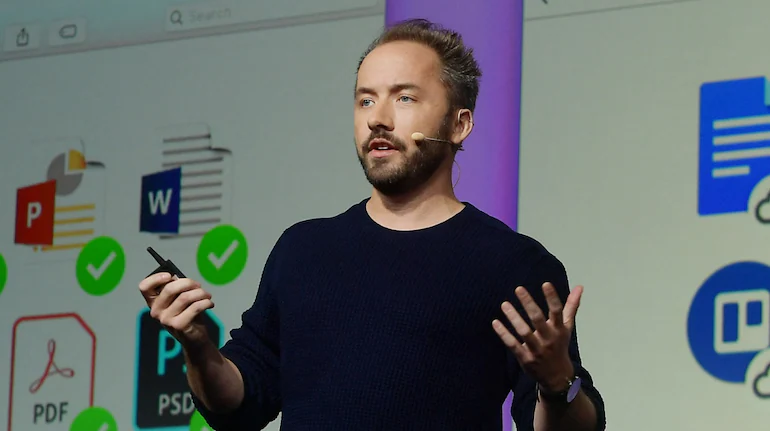- Dropbox CEO Drew Houston says employees value flexibility over office frills like snacks.
- Houston warns return-to-office pushes breed “toxic” employee relations.
- Dropbox’s “virtual first” model unlocks talent, avoids hybrid “worst of both worlds.”
The snack attack fallacy
Drew Houston, Dropbox’s CEO, has a message for leaders clinging to cushy office perks: snacks won’t cut it anymore.
According to Houston, employees have made their priorities clear – they “value flexibility a lot more than snacks in the office.”

While some companies double down on forcing employees back to offices, Dropbox takes a different approach. Houston views remote work retreats and off-sites as more effective for fostering connections than mandating commutes.
Toxic return-to-office pushback
Houston believes many leaders are stuck in the past, “mashing the go back to 2019 button” with return-to-office mandates. This stubbornness, he warns, breeds “a really toxic relationship” with employees who crave flexibility.

Dropbox’s “virtual first” model, implemented in 2020, reflects Houston’s understanding that flexibility was never an option in the past.
Now, with 90% remote employees, Dropbox has tapped into talent pools previously inaccessible, boosting recruitment and avoiding the “worst of both worlds” hybrid compromise.









